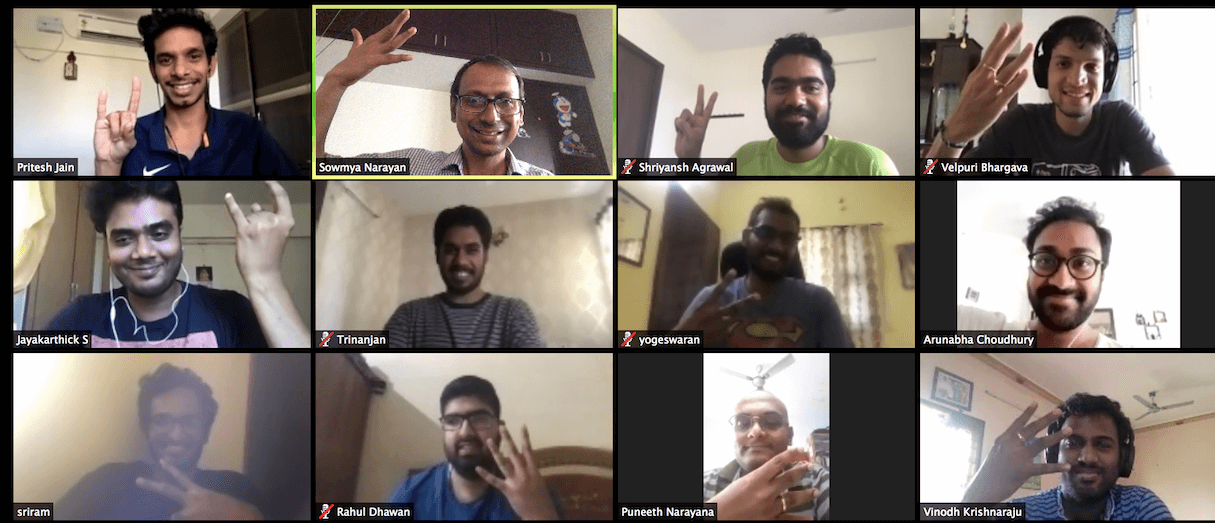

Given our current remote global workforce, a new format for PI Planning meant additional preparation. Context setting happened earlier than usual, and a visual collaboration tool had to be decided upon in advance. Sowmya made sure to include a longer timeline to complete planning; it lasted a week instead of two days to allow for breaks and time zone adjustments. And with the help of creative new Slack channels, role-specific panels and a lot of cross-functional collaboration, our first remote PI Planning session was a success!
How do you use PI Planning to drive innovation at FourKites?
When our teams are constantly sprinting, it is important to take breaks at regular intervals to refresh their mind. In our PI planning, we plan for two weeks of Innovation & Planning (IP) sprints, once every 5 sprints. While some teams use it for training and upskilling, others get creative and run a “bug bash”, while others plan for a hackathon. Teams now have an option of both dedicated time and capacity available for tackling different priorities of their choice, and at regular intervals. In previous PIs, we had teams build some cool internal dashboards, while others ran proof-of-concepts to improve technical architecture.
The last bug bash event organized by our Operations team was so different, that it fostered cross-team collaboration and gamification. While solving bugs, teams came up with innovative solutions to avoid such bugs in future, and also came up with cool ways to troubleshoot faster.
What were the biggest lessons you learned about yourself and the team after successfully completing PI Planning remote this year?
We had no internal precedence for a fully remote PI planning. What I learned though is that when we tap into collective wisdom, we get brilliant ideas. No matter how much we plan, there will be surprises. What matters is how those surprises are handled. Teams tackled that challenge head on and persevered. They came up with innovative ideas and created open Slack channels to discuss dependencies among themselves.
Another key learning for me was that each person has different perspectives. One approached the whole event very seriously with a lot of planning involved, while another looked at it as a complete “non-event” and said everything needs to be dealt with pragmatically. It is important that we are aware of these mindset differences.
How were you able to empower the team to stay engaged and make an impact during this first remote PI Planning?
Autonomy was crucial. Instead of driving breakout sessions centrally, each team was given complete ownership to decide on the timing and format of their breakout sessions. We understood that only in ideal circumstances can all teams be expected to complete their planning on time. With this in mind, we kept placeholders for architect panel discussions and let the teams decide when they wanted to present their design challenges. Some wanted it on Day 1, while some wanted it on the last day! Additionally, we identified scenarios and situations where we could give complete autonomy to the teams. This included handling dependency negotiations, when to present their draft plans, which collaboration techniques would be used, and so on.
One week of planning went by like a 100-meter sprint – that was the feeling that Adesesh Duraisamy, Manager of Program Management, and I had upon its completion. We survived a fully remote PI, and we are more excited than ever to deliver on the outcomes. Along the way, there were a ton of learnings, a few “could-haves” and a few “oh-no’s!”, which we will address for our next PI Planning. The struggles of today will be the “good old days” we laugh about tomorrow.